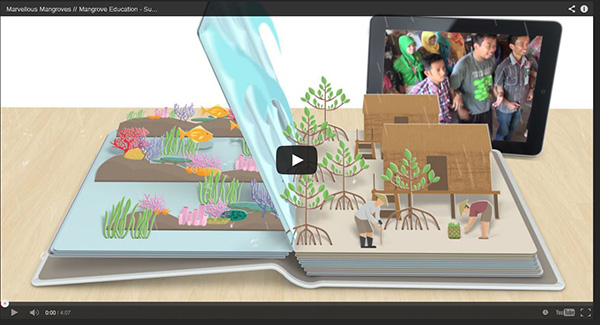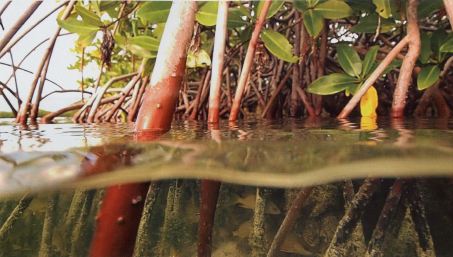FEATURE STORY PHULBARI UPDATE Govt says ‘no’ to open-pit mine in Bangladesh

Bangladesh – The state minister for power, energy and mineral resources, Nasrul Hamid, on Sunday said that the government was not interested to extract coal from the deposits in the north Bengal region using open-pit method. ‘We have decided not to extract coal right now… We must consider high density of population and the agro-based economy of the mining area,’ he said while addressing as the chief guest a seminar on ‘Energy Challenges to Vision 2030.’ The discussion was organized by weekly Energy and Power magazine. Instead, the government is planning to use imported coal to run large power plants to be installed with a combined generation capacity of about 20,000 MW by 2030, he said. Nasrul’s remark came three days ahead of August 26, the 9th anniversary of the killing of protesters who had opposed in 2006 a move for open pit mining by London-based Asia Energy company at Phulbari of Dinajpur. The then Bangladesh Rifles men had opened fire on a peaceful rally and killed at least three people. On that day, police, RAB and BDR indiscriminately had beaten people, injuring over 200 children, men and women who attended that peaceful rally and demanded cancellation of the project. READ MORE ASIA
EDITOR’S NOTE: The following is pertinent because these same dams upriver are killing the mangroves in the Delta as well.
Dams 'destroying Mekong fish stock'

THAILAND – Fishermen in delta and Northeast Thailand say dams in China and Laos have hit breeding and yields, forcing many to quit. River fishermen have already suffered dramatically from dams and irrigation works, which have decimated fish stocks and undermined livelihoods that supported families for generations. Nguyen Anh Duy, a 33-year-old, third-generation fisherman from the Mekong Delta in Vietnam, is one of the millions of rural people who rely on the fertility of the river to make a living. However, his occupation as a fisherman who depends on wild-caught fish from the river will be lost in a few years. "I am a fisherman who has caught fish in the water around here for all my life. My father and my grandfather also did the same job as me. I was born and grew up here," he said about his life. He and his wife and two children live together within the small confines of his boat. "The fish have been gradually disappearing over the years. My catch is getting smaller and smaller. In the dry season, most fish are small and hard to catch. But the fish price has gone up every year too," he said. READ MORE
Effects of different management regimes on mangrove ecosystem services
INDONESIA – A new report, published by Wageningen University and Wetlands International, seeks to fill a significant gap in mangrove ecosystem service estimates. While several studies have sought to measure and value the ecosystem services provided by mangrove ecosystems in general, this new piece of research has for the first time conducted separate evaluations for zones that are characterised by distinct management activities – so-called ‘management regimes’, which include protected, rehabilitated, silvo-fishery and converted mangrove systems. The analysis conducted for the report served as the basis for a peer reviewed article on the journal Ocean & Coastal Management. READ MORE
AMERICAS
Disney Conservation Fund applauds MAP’s curriculum on Facebook

The Mangrove Action Project has had a busy summer continuing to introduce its Marvellous Mangroves curriculum in China, India and Bangladesh! During a 3-day workshop in Bangladesh, teachers and students visited the Sundarbans mangrove forest, the largest mangrove forest in the world, to study different species while learning about mangrove conservation. READ MORE
2016 Mangrove & Macrobenthos Meeting (MMM4) announced
USA – The Mangrove & Macrobenthos Meeting (MMM4), will be hosted in the USA along the Atlantic Coast of Florida, July 18-22, 2016. The conference will be held at Flagler College, in historic downtown St. Augustine. This location along the Atlantic Coast of Florida represents the transition between temperate and tropical zones where the pressures of climate change are especially visible. As a result of decreasingly cold winters and sea level rise, the distribution of mangroves is expanding northward and landward along this part of the Florida peninsula into coastal wetlands that have historically been dominated by saltmarsh plants. This location, which currently contains the northernmost Atlantic exemplars of all three mangrove species found in North America, provides numerous opportunities for conference attendees to witness the consequences of climate change at this dynamic ecotone, setting the stage for an international discussion on the causes and consequences of mangrove ecosystem responses to an ever-changing climate. READ MORE
Little creature, HUGE footprint
USA – Three years ago when J. Boone Kauffman, an ecologist from Oregon State University and an associate of the Center for International Forestry Research (CIFOR), released a paper that calculated the enormous impact mangrove shrimp farming has on the environment, he decided to personalize the research. He put the shrimps on dinner tables. Boone estimated that a 100-gram serving of shrimp – a shrimp cocktail, say – had an ecosystem carbon footprint of 198 kilograms of CO2 if it had been produced on a typical mangrove fish farm. That tempting appetizer held an unambiguous warning sign about habitat loss and deforestation. “The carbon footprint of the shrimp is about 10-fold greater than the land use carbon footprint of an equivalent amount of beef produced from a pasture formed from a tropical rainforest,” he recently told an audience of scientists as CIFOR. READ MORE
Message from MAPS Executive Director: We should not assume, as the author seems too ready to assume, all is well now with CP seafood exports just because they say so. There must be an independent verification process to ensure this. If 9 out pf 10 suppliers were cut off by CP because of this scandal, how has CP managed to replace that former supply chain with "clean" suppliers. And, surely the company had some earlier knowledge of the miss-steps of its suppliers, after all the news of such trafficking practices in the industry goes back several years, and yet CP continued to buy from these suppliers. What this lawsuit points out is that companies like COSTCO need to better scrutinize the quality of those products they sell to ensure they are not tainted by chemical poisons or toxins or the blood, sweat and tears of slave labor! COSTCO should not further subject its customers to the choice of more "blood shrimp" in their seafood purchases.
This is the other seafood lawsuit that deserves attention
USA – This week, a number of companies and consumers have made headlines by filing price-fixing lawsuits against three major tuna producers here in the United States, but there’s another legal case going on against an equally large company that deserves emphasis this week too, as a lesson on how much attention the industry’s customers are paying to how it does business. The 19 August lawsuit by California resident Monica Sud against Costco and its shrimp supplier, Thailand’s CP Foods, is a good example of citizen activism, as long as the litigants keep in mind the complexity of the modern seafood supply chain. Sud is suing, on behalf of all Costco customers who buy shrimp from the wholesale club store, to seek restitution from the club for shrimp she bought that she believes was the product of slave labor. While she is seeking restitution her attorney, Derek Howard, has made it clear that this is about more than just money. “We’re interested in action, not litigation,” he said, indicating he and Sud would be willing to sit down with Costco and make a pledge of changes on Costco’s part a factor in the case. READ MORE
Don't destroy a delicate marine ecosystem

ANTIQUA – Investment firm YIDA International recently purchased 1600 acres of undeveloped coastal land with the intention of building a huge, billion-dollar tourist development on it. Hard Rock International, owners of the Hard Rock Cafe and Casinos, has announced they will be the first to build on the land. The land is a delicate marine ecosystem that lies within a Marine Reserve Area, but despite these legal protections, plans indicate the clearing of marshes, mangroves, mud flats, coral reefs, and critical nesting vegetation. Completion of the project would mean either breaking laws, or changing them to allow for ill-advised development. These habitats have provided for the people of these islands for more than 4000 years. These ecosystems also protect the Antiguan and Barbudan people from the growing threat of climate change, such as rising sea levels. The mangroves are potentially life-saving buffers against storm surges caused by hurricanes, and are crucial nurseries for fish as well as the habitat of many birds and other species. READ MORE
Tropical forests almost the size of India set to be axed by 2050
CANADA – Tropical forests covering an area nearly the size of India are set to be destroyed in the next 35 years, a faster rate of deforestation than previously thought, a study warned. The Washington-based Center for Global Development, using satellite imagery and data from 100 countries, predicted 289 million hectares (714 million acres) of tropical forests would be felled by 2050. The results will have dangerous implications for accelerating climate change, the center's study said. Deforestation contributes to climate change as forests store carbon while acting as a filter taking the heat-trapping carbon dioxide gas out of the atmosphere. If current trends continue, tropical deforestation will add 169 billion tons of carbon dioxide into the atmosphere by 2050, the equivalent of running 44,000 coal-fired power plants for a year, the study's lead author said. READ MORE
EUROPE
Give locals forest responsibility, researchers urge

UK – People living in and around tropical forests need to play a bigger role in woodland management to reduce the environmental degradation that affects three-quarters of the world’s forests, say researchers. A study published in Science last month (21 August) found that Earth has lost 100 million hectares of tropical forest in the past 30 years – an area about three times the size of Germany. However, people living directly off forest resources have the skills and knowledge to use their surrounding woodland sustainably, the study states. Their strategies for resource management should be rolled out to prevent tropical forests from being left in a “fragmented, simplified and degraded state”, says Simon Lewis, a researcher at the geography department of University College London, United Kingdom, and lead author of the study. The paper is part of a Science special issue summarizing the latest research on forest health and management. READ MORE LAST WORD(S) A Letter from MAP Executive Director
To Southwest Florida Water Management District
Brooksville Headquarters
2379 Broad Street
Brooksville, FL 34604-6899
Phone: (352) 796-7211
Dear Friends at SWFWMD,
I would strongly recommend that the Southwest Florida Water Management District (SWFWMD) deny the permit for the developer Pat Neal to destroy an area of mangroves in order to build four homes on Perico Island.. It is not a good idea to destroy mangroves and this is further important because of the high quality of these mangroves on the island adjacent to the pristine Florida waters of Anna Maria Sound. The SWFWMD should follow the lead of the administrative law judge who had earlier recommended that the water management district’s board deny the order.
With sea level rise due to climate change and increasing intensity and frequency of coastal storms and strong waves, Florida needs all the mangroves it can conserve and sustain. It is not a good time to worsen an already serious deficit in existing coastal buffer, thus causing further damage and likelihood of worse environmental repercussions. Mangroves are vital wetlands, essential for marine life and protecting a healthy coastal zone. Please do not permit this further loss of an already diminished ecosystem.
Towards Better Long-Term Coastal Conservation and Resource Management,
Alfredo Quarto,
Executive Director
Mangrove Action Project
http://www.mangroveactionproject.org
READERS To submit comments to SFWWMD email Info@watermatters.org BACK TO TOP
Not yet a subscriber? Click here to subscribe. Please cut and paste these news alerts/ action alerts on to your own lists and contacts. Help us spread the word and further generate letters of concern, as this can make a big difference in helping to halt a wrongdoing or encourage correct action. ACTION ALERTS WANTED: MAP News is looking for links to calls to actions/petitions and letter writing campaigns on mangrove issues, tropical coastal communities and other related topics. Not all submissions can be selected, but we look forward to hearing about your work and want to let our readers' voice be heard!
Email submissions to news@mangroveactionproject.org | Action Alerts: Millions of reasons to love mangroves CLICK HERE
Ensuring environmental protections for Antigua CLICK HERE India: stop fishing cat poaching now!
The fishing cat is a sleek, stealthy predator at home in mangrove forests and marshlands in South Asia. Habitat loss and poaching have cut their numbers in half in less than two decades. Tell the Indian forest authorities to finally give it the protection it deserves! Save Guanaja for Future Generations! Improve, not Sacrifice! SIGN OUR PETITION STOP CHINESE DEVELOPERS – Help protect our Marine protected area Volunteer Opportunities with Mangrove Action Project CLICK HERE
STOP PLANTING MANGROVES ON SEAGRASS BEDS _ A CALL TO ACTION 
Our short presentation will give you a better understanding of the issues we are working to solve. WATCH PRESENTATION
What is CBEMR? Easy to follow fact sheet – CLICK HERE SHARE MAP'S VISION
CLICK HERE to watch short introductory video. Together we can work "at the roots of the sea". Join us in saving our beautiful country!
We hope you have been following the ongoing battle in Bimini, Bahamas.
We are in need of your help more than ever Click here
Exclusive Interview with Alfredo Quarto, Co-Founder and Executive Director of Mangrove Action Project – See more
Marvellous Mangroves Curriculum Marvellous Mangroves Curriculum in Bangladesh – WATCH VIDEOMARVELLOUS MANGROVES IN BRAZIL
En Portuges 
Marvellous Mangroves – A Curriculum-Based Teachers Guide. FOR MORE ON MAPs AWARD WINNING CHINA MANGROVE CURRICULUM VISIT

VIMEO SHOW VISIT OUR "MM" WEBPAGE Check out our presentation for more details on Marvellous Mangroves “Education In The Mangroves" can now be seen on the PhotoPhilanthropy website here! Read this 10 page history of the development of MAP’s educational curriculum VIEW DOCUMENT
Article in Canada's Green Teacher Magazine – Read More 
FREE MAP Mangrove e-cards CLICK HERE
 MAP’s e-Cards offer you a unique way to spread the word about MAP’s good works, while sharing beautiful photographs of the mangroves
Donate to MAP via Paypal
Giving could never be easier  It’s the action, not the fruit of the action, that's important. You have to do the right thing. It may not be in your power, may not be in your time, that there'll be any fruit. But that doesn't mean you stop doing the right thing. You may never know what results come from your action. But if you do nothing, there will be no result. —Mahatma Gandhi It’s the action, not the fruit of the action, that's important. You have to do the right thing. It may not be in your power, may not be in your time, that there'll be any fruit. But that doesn't mean you stop doing the right thing. You may never know what results come from your action. But if you do nothing, there will be no result. —Mahatma Gandhi Green Planet Fundraising Assists MAP – LEARN MORE
MANGROVE ISSUES The importance of restoring mangroves in an effective, long-term manner. Mangrove CBEMR video – VIEW Question Your Shrimp Consumer/Markets Campaign! WATCH VIDEO Mangrove Restoration in Asia – Watch Short Video 
READ A MOSAIC OF LIFE Peek into the underwater world of mangroves, "womb of the sea." By Liz Cunningham Photos By Wes Matweyew and Liz Cunningham
"Question Your Shrimp" Campaign Learn more about the affects of the shrimp industry on mangroves by visiting our blog Editor’s Note: Mangrove Action Project’s Executive Director, Alfredo Quarto was interviewed about shrimp by Green Acre Radio’s Martha Baskin LISTEN TO INTERVIEW Information sheds clear light on shrimp-mangrove connection
Join MAP on Facebook
Sign the Consumer's Pledge to avoid imported shrimp

Not yet a MAP News subscriber?
Click here to subscribe.
Note to Our Readers:
We strive to keep active links in our newsletter. However, due to circumstances beyond our control, occasionally links to stories may become broken. If you find a link to a story is not functioning, please cut and paste the headline into your browser search bar. In most cases you should be able to locate the original story.
Help Mangrove Action Project through your recycled E-Waste. List of Accepted E-waste Items: Injet Cartidges, Cell Phones, Pagers, GPS, Radar Detectors, Mobile Hot Spots, Calculators, eBook Readers, iPods/MP3 players, Digital/Video Cameras/Camcorders, PDAs, iPads/Tablets/Laptops, Video Game Consoles, Handheld Video Games Visit the Mangrove Action Project recycle website Click on the recycle button then click on the Download Shipping Label, and follow the instructions. 
|












